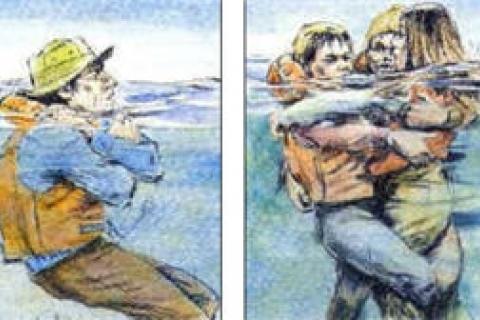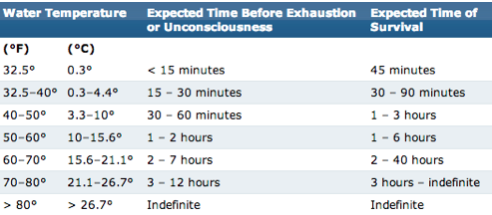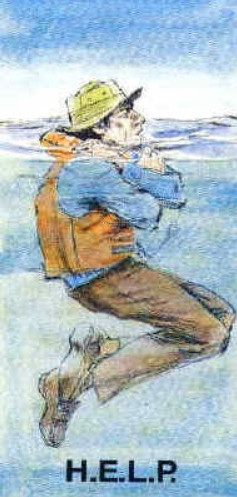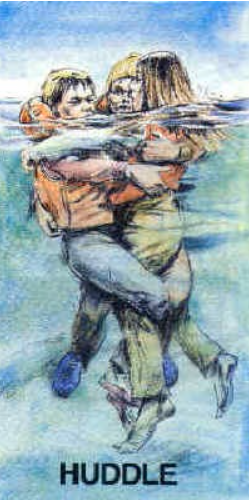
Hypothermia is a condition in which a person’s core body temperature reaches a health-threatening low. It occurs when the body’s core temp is at 96 degrees F or lower.
Hypothermia is a serious health concern, with effects ranging from sluggish body functions to, in severe cases, death.
The condition most often sets in when the body is exposed to moisture and wind. Thus, for those boating in cool, breezy weather or similar activities, hypothermia is of particular concern.
Symptoms include convulsive shivering and clumsiness, which may progress to a loss of ability to shiver and/or confusion and abnormal behavior, which may then progress to unconsciousness slow pulse and/or a rigid body.
It is of the utmost importance that people engaging in outdoor activities are well aware of the seriousness of hypothermia, and understand the urgency of immediate action in the case that one falls into cold water.
See the table below, via Minnesota Sea Grant, for full details on the danger presented by cold-temperature waters:

So what should boaters or fishermen do if they find themselves in cold, open water as the result of an overturned boat or other accident?
Follow these instructions, compiled from hypothermia.org and Minnesota Sea Grant:
- First and foremost, be prepared: Always wear a life jacket and carry a safety whistle.
- Swim toward shore only if the water is calm and you’re closer than 1,000 yards. Even the strongest of swimmers can tire and lose too much body heat if water is choppy and the shore is a greater distance away. Otherwise, remain still unless moving toward other people or floating debris.
- Climb atop any overturned boat or floating debris, if possible. The goal is keep as much of your body out of the water as you can.
- If stranded in the water and isolated, curl up as much as possible to conserve heat – cross arms over chest and pull crossed legs up toward the core.
- If stranded in the water with others, huddle together and intertwine limbs to conserve heat.


(images via http://www.hypothermia.org/inwater.htm)
- Alert others of your emergency by blowing a whistle, or by signaling with flares or a mirror.
- Maintain a positive outlook and a will for survival.
- Once rescued, seek professional medical attention immediately.
For additional information on this topic, please read “What to Do if You Fall Through the Ice” on Bass Pro Shops 1Source.
For more helpful information on camping, hunting, fishing and other outdoor activities, please browse the array of blog posts available on the Bass Pro Shops 1Source website.
- 3536 views

